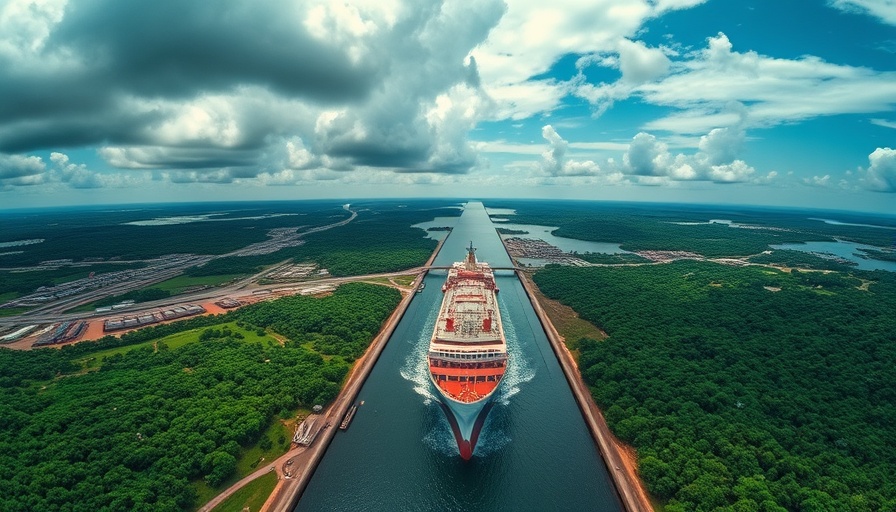
Trump’s Call for Free Transit: A Rethinking of Global Trade?
Former President Donald Trump's recent assertion that American ships should travel through the Panama and Suez Canals for free has ignited a flurry of debates surrounding international shipping costs and trade policies. Shipping through these key maritime corridors significantly affects global trade dynamics, however, Trump's proposal raises questions about economic implications, fairness, and international relationships.
The Financial Impact of Canal Fees
The Panama Canal, which connects the Atlantic and Pacific Oceans, and the Suez Canal, a gateway for ships between Europe and Asia, both charge tolls based on the size and type of vessels. Fees can amount to thousands of dollars per ship, potentially stretching into millions when considering the extensive navigational traffic these canals accommodate. Easing these costs for American ships might seem beneficial, especially in a climate of rising inflation and economic uncertainty, as it could lower shipping expenses for U.S. businesses.
Trade Relationships and International Law
While the economic freedom for U.S. ships could be championed as nationalistic, it is crucial to consider the broader implications of such a stance. The agreements governing the Panama and Suez Canals involve nuanced international treaties and cooperation among various nations. A unilateral decision to grant free passage could strain diplomatic relations, potentially affecting trade agreements or even leading to retaliatory measures from other nations whose shipping industries rely on the income from canal tolls.
Exploring Broader Economic Trends
The transportation sector is currently influenced by multiple trends, including sustainable investing and the globalization of supply chains. As nations continue to navigate the complexities of international trading practices, discussions like Trump's may underline the need for more holistic approaches to trade policies that integrate environmental considerations and equitable economic practices.
Potential Reactions: Support and Opposition
Supporters of Trump's proposal might argue that easing such costs can provide a much-needed boost for American businesses, particularly in export-heavy sectors. Conversely, critics may highlight the risk of undermining established international shipping regulations and norms. This tension reveals a larger debate between prioritizing domestic economic advantages against maintaining complex global partnerships.
Future Considerations for U.S. Trade
As we look forward, it’s critical to assess how policies like Trump's resonate within the broader landscape of U.S. trade, especially with rising competition from emerging markets. An important lens is asset allocation for investors, as shifts in transportation costs can directly influence investment strategies ranging from real estate investments to mutual funds that focus on sectors significantly impacted by global trade dynamics.
Investment Opportunities in Changing Markets
For investors, understanding the implications of proposed changes in trade infrastructure can be vital for portfolio diversification. The potential for lower shipping costs might increase the attractiveness of investing in companies engaged in global logistics or export-driven industries. Furthermore, as sustainable practices gain traction, concerned investors should look for funds focusing on green logistics, which may be aligned with public sentiment around environmental responsibilities.
As discussions around free transit through significant maritime corridors evolve, they will undoubtedly shape economic policies and investment trends in a world increasingly challenged by global connectivity and environmental urgency.
 Add Row
Add Row  Add
Add 



Write A Comment